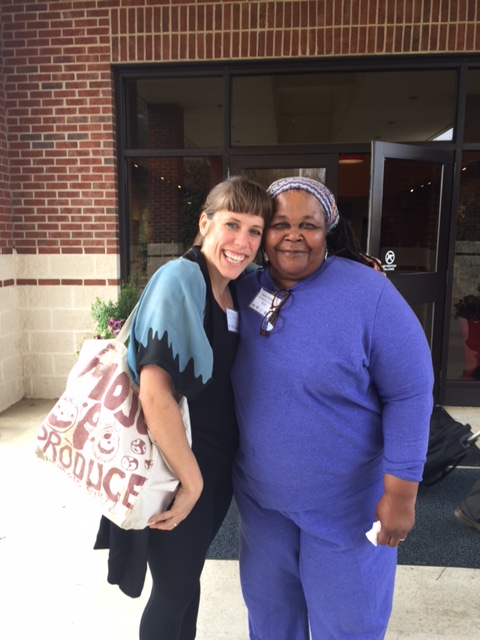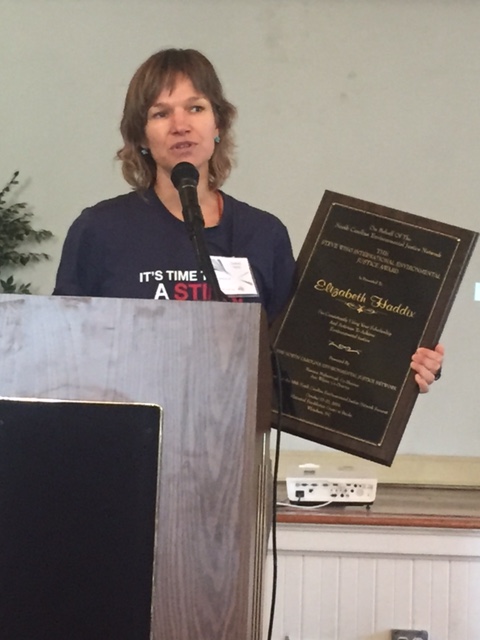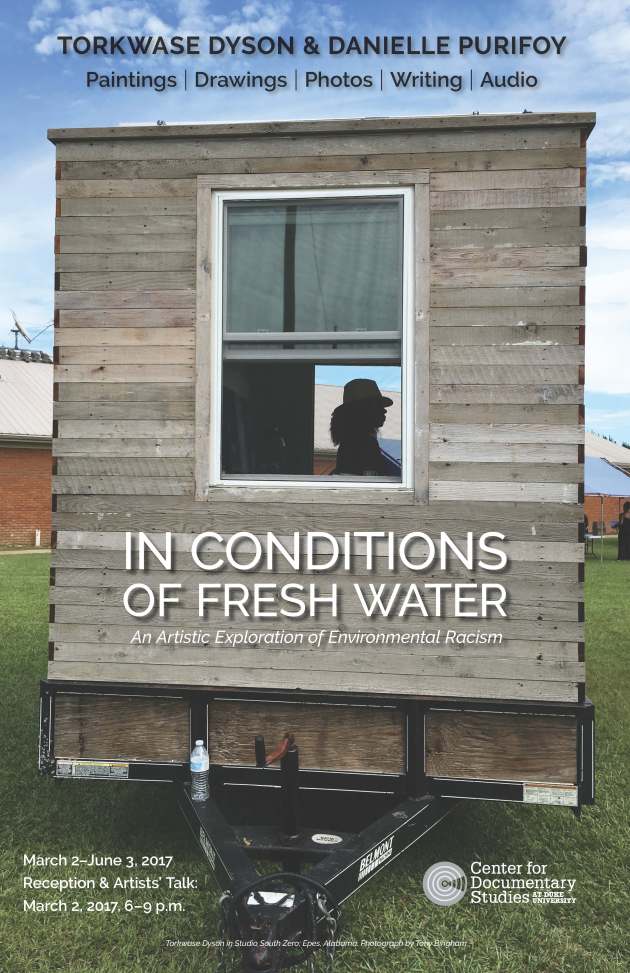December 20, 2017
by NCEJN
Dear NC EJ Network Family,
We hope this letter finds you well, and enjoying the holiday season!
Thank you for your ongoing commitment to the NC Environmental Justice Network. This year was full of seemingly endless battles for justice, and we appreciate you sticking with us through it all—whether you donated, volunteered, or stood with us at the General Assembly.
Because of your support, on March 29th, we were able to mobilize scores of people from Eastern NC to testify against HB 467, which restricts damages allowed for nuisance lawsuits against Big Ag. While we did not ultimately defeat the bill, we were successful in forcing the legislature to change the language such that the restrictions did not apply retroactively—which was intended to cripple ongoing litigation against the hog industry.
Your assistance also helped us to defeat another monster bill—HB 576 (aka the “garbage juice bill”), also sponsored by Rep. Jimmy Dixon, which would have approved yet another bogus technology (remember the “solar bees?”) that sprays wastewater from landfills into the air, allegedly to save landfill operators the cost of wastewater treatment—they’d rather poison communities instead. Many of you joined us in petitioning Governor Cooper to veto the bill, which he did on June 30th.
There was one bill introduced this year that we do support, and it’s a result of years of your support.
On October 23rd, after two visits with EJ Network members in Eastern North Carolina and learning about our decades-long advocacy against the hog industry, U.S. Senator Corey Booker announced The Environmental Justice Act of 2017, which extends former President Clinton’s 1994 Environmental Justice Executive Order 12898 to require federal agencies to address environmental justice through actions and permitting decisions, including considerations of cumulative environmental impacts, and empowering communities with concrete legal tools to fight government neglect in environmental protection.
Finally, thanks to your generous donations and hours of volunteering, we hosted our biggest Environmental Justice Summit ever. We welcomed 185 community members, organizers, scholars, lawyers, and government officials to this year’s convening on “Building People’s Power Against State Violence Through the Lens of Environmental Justice.” People were so committed to joining us that some even pitched tents and camped outside the Franklinton Center at Bricks when we ran out of lodging!
Thank you for your dedicating your time, energy, and brilliance to our Summit workshops on grassroots resistance, the school-to-prison pipeline, to our research session, and to our government listening panel.
Special thanks to our incredible volunteer Summit coordinators—Adrien Wilkie, Dezma Lyons, Sarah Rhodes, and Danielle Gartner—who went above and beyond their duties to ensure the program ran smoothly.
This slideshow requires JavaScript.
These are just a few reasons to celebrate with us this year, in the midst of innumerable challenges in our state and broader nation. And these are also reasons we hope you will continue to stand with us in 2018—our 20
th year!
With your support we will continue our battle against predatory bills and other efforts to further strip away our right to a clean and healthy environment. We will convene for what we hope will be our biggest Summit to date—celebrating 20 years in struggle and planning for 20 more. We will continue to honor the legacies of the EJ warriors in whose footsteps we walk, like Steve Wing, Cynthia Brown, and Marilyn Snipes.
Can we count you in? If so, please make a tax-deductible donation to the NC EJ Network by December 31st.
We aim to raise $5,000 by December 31st, and thanks to your contributions on #GivingTuesday, we’re already on our way!
These funds will pay for our quarterly meetings in impacted communities, scholarships for our 20th Anniversary Summit, resources for effective community organizing, and supporting the critical labor of our staff.
You can make donations online or via mail:
NC EJ Network
P.O. Box 68
Rocky Mount, North Carolina 27802
We thank you for your support, and your commitment to environmental justice for all communities.
Happy Holidays!
Sincerely,
NCEJN Board and Staff
Naeema Muhammad Ayo Wilson Chandra Taylor
Danielle Spurlock Courtney Woods Peter Gilbert
Don Cavellini Danielle Purifoy Elsie Herring
Ellis Tatum Nicholas Woodard Onté Johnson
Lana Carter
Suggested Contributions:
$15
$25
$55
$100
$120 [pays for 1-day Summit scholarship]
$160 [pays for Full Summit scholarship]
$185 [pays for Full Summit scholarship + lodging at Franklinton Center]
If you want to make a contribution in honor of someone, please indicate in the payment memo online or on your checks.
THANK YOU!











 We’re having our first quarterly meeting of 2017! Quarterly meetings are intended to bring our network of community advocates, researchers, activists, and students together in impacted communities to discuss pertinent environmental issues and strategies affecting those communities and our larger network.
We’re having our first quarterly meeting of 2017! Quarterly meetings are intended to bring our network of community advocates, researchers, activists, and students together in impacted communities to discuss pertinent environmental issues and strategies affecting those communities and our larger network.  With their project and resulting exhibition—In Conditions of Fresh Water—artist Torkwase Dyson and attorney/environmental scientist Danielle Purifoy explore environmental racism based on their collaborative documentary research with citizens in two North Carolina and Alabama counties.
With their project and resulting exhibition—In Conditions of Fresh Water—artist Torkwase Dyson and attorney/environmental scientist Danielle Purifoy explore environmental racism based on their collaborative documentary research with citizens in two North Carolina and Alabama counties.
 </
</